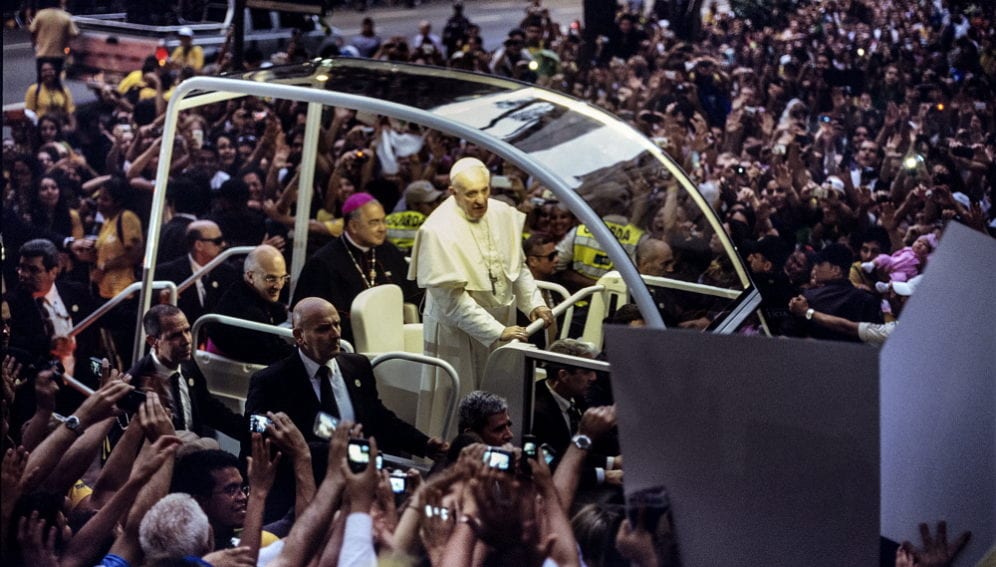By: Roger Williamson
Send to a friend
The details you provide on this page will not be used to send unsolicited email, and will not be sold to a 3rd party. See privacy policy.
In 2015, the world’s governments are meant to sign up to a binding climate change agreement and a new set of development goals, to follow on from the Millennium Development Goals.
At the start of each year, the Economist predicts what to expect in the coming 12 months. This year’s edition, The World in 2015, finds a few — actually very few — pages to discuss the prospects for the two agreements. [1]
Yet the most instructive parts are the spaces where The Economist owns up to some of its failed predictions from the year before.
Many different people seem to have been the first to warn us about the dangers of making predictions; especially about the future, because — as the joke runs — those are the ones that often go wrong.
One example is Nobel economics laureate Daniel Kahneman, who said: “Economists … are quite good at explaining what has happened after it has happened, but rarely before.” [2]
It is impossible to predict the outcome of climate change negotiations or calculate the odds of their success with mathematical certainty. The future is open and will surprise us. Wild cards often crop up in policymaking and new political constellations emerge.
But spotting those wild cards as they emerge can suggest the direction negotiations are heading in. I want to identify two such developments, and show how science figures within each.
How science’s role is understood by big policy players makes a political difference. To say: “Yes, the Intergovernmental Panel on Climate Change is giving us yet another ‘last chance’ to save the planet”, as news media often do, decreases the chances of international agreement by fuelling cynicism or, at best, agnosticism. That message suggests: sit on your hands and wait and see. But once the proof is in, that this was indeed the last chance, it will be too late.
There are better ways to use science than to frighten people into learned helplessness. And the two new sources of policy influence that I see illustrate this, while offering hope and momentum.
The first is the China-US agreement on reducing carbon emissions. My examination of the language in the agreement shows that it is evidence-based, and scientifically and technologically oriented. [3] The two great emitters have found a non-ideological, shared language to identify where they can move forward together. And they have agreed joint research on clean energy and carbon capture and storage.
The second is the pope’s announcement that he will issue a teaching document, called an encyclical, about climate change to try to advance the discussions. Through this, the worldwide Catholic community, numbering around a billion people, will receive instruction on how to look at the scientific evidence for climate change and at the ethical evaluation of it.
The pope has already shown a strong lead by arguing that action is needed because climate change most affects poor people. And he personally saw what extreme weather can do during his recent visit to the Philippines, parts of which were devastated by typhoon Haiyan. [4] The encyclical could build on this good work: the Pope has the highest moral authority within the Catholic community to insist that Catholics look at the facts and act.
Science-based agreement between the climate superpowers and moral commitment from one of the biggest grass-roots networks in the world provide new momentum and increase the chances of a positive outcome at the UN’s climate summit in Paris this September.
There’s no guarantee that things will work out well, but there is now additional cause for hope.
Roger Williamson is an independent consultant and visiting fellow with both UNU-WIDER and the Institute of Development Studies at the University of Sussex, United Kingdom. Previous positions include organising nearly 80 international policy conferences for the UK Foreign Office and being head of policy and campaigns at Christian Aid.
References
[1] The world in 2015 (The Economist, 2015)
[2] Tim Adams This much I know: Daniel Kahneman (The Guardian, 8 July 2012)
[3] Fact sheet: US-China joint announcement on climate change and clean energy cooperation (The White House, 11 November 2014)
[4] John Vidal Pope Francis’s edict on climate change will anger deniers and US churches (The Observer, 27 December 2014)














